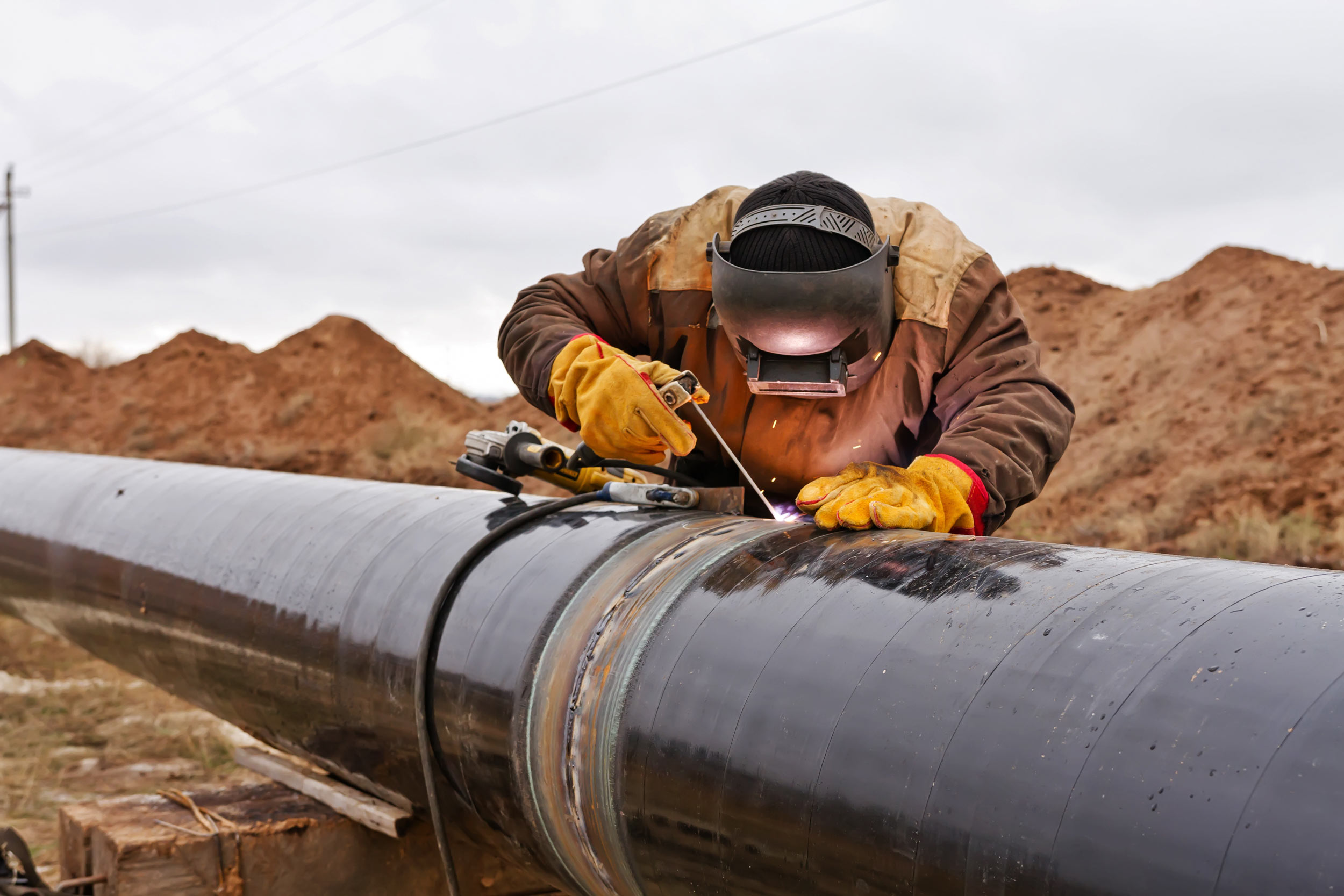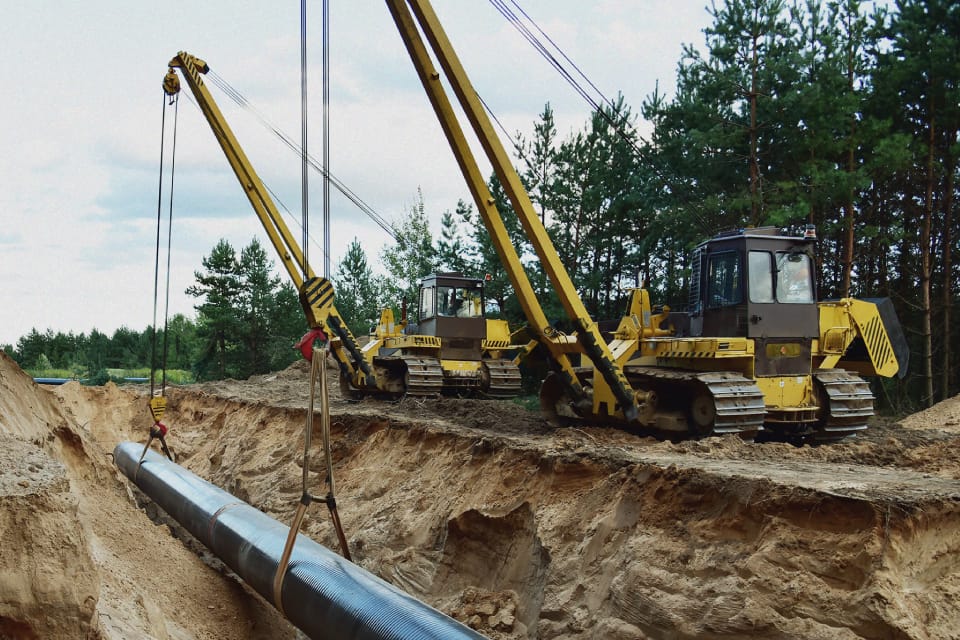Understanding the Trick Functions of Pipeline Providers and Their Influence On Efficiency
Pipeline solutions play a necessary role in numerous markets, affecting functional effectiveness considerably. Trick functions, such as sophisticated tracking technologies and maintenance approaches, are important for lessening downtime. Additionally, regulatory conformity guarantees safety and environmental security. Nevertheless, the interaction between style, facilities, and economic elements can make complex these procedures. Understanding how these elements impact general effectiveness elevates vital inquiries about best techniques and future growths in the area.
The Function of Modern Technology in Pipeline Tracking
As improvements in technology remain to evolve, the relevance of reliable pipe surveillance has become progressively noticeable. Modern pipeline systems count on sophisticated surveillance tools that improve operational effectiveness and safety and security. Technologies such as real-time data analytics, sensors, and drones give drivers with immediate insights into pipe problems, allowing them to identify leaks, corrosion, and various other potential concerns prior to they escalate right into considerable issues.
The combination of Net of Points (IoT) gadgets has actually transformed typical monitoring techniques, allowing for continual monitoring and automated coverage. This aggressive approach not just lessens risks yet additionally optimizes maintenance routines and source allowance. Additionally, advanced software systems assist in information visualization and interpretation, equipping decision-makers to respond swiftly to anomalies. Collectively, these technical developments not just enhance pipeline honesty yet likewise foster ecological stewardship by alleviating the potential impact of leaks and spills.
Maintenance Techniques for Improved Performance
Efficient maintenance methods are important for optimizing pipe effectiveness. Implementing predictive maintenance strategies, adhering to regular examination procedures, and creating durable emergency reaction plans can considerably enhance operational reliability. These methods not just decrease downtime but additionally contribute to the overall security and stability of pipe systems.
Anticipating Maintenance Methods
Anticipating upkeep strategies are increasingly recognized for their capability to boost functional performance in pipeline services. By leveraging information analytics and monitoring modern technologies, these strategies make it possible for drivers to expect devices failings before they occur. This aggressive method minimizes unexpected downtime, decreases upkeep expenses, and extends the life-span of essential properties. Sensing units and IoT tools play a crucial role in gathering real-time data, allowing for the analysis of tools health and efficiency patterns. Artificial intelligence formulas evaluate this data to recognize patterns and forecast prospective problems. Subsequently, pipe drivers can arrange upkeep activities throughout non-peak times, maximizing source appropriation and ensuring continual operation. Inevitably, the adoption of anticipating maintenance cultivates a more reputable and effective pipe facilities.

Routine Evaluation Protocols
Routine assessment procedures function as a foundation of maintenance techniques focused on enhancing efficiency in pipeline operations - Creek Pipe local contractor. These protocols involve methodical assessments of pipe stability, concentrating on identifying prospective issues before they escalate. Routine assessments usually include aesthetic evaluations, leakage detection modern technologies, and pressure monitoring to guarantee peak efficiency. By adhering to recognized routines, operators can recognize rust, material wear, or obstruction, thereby minimizing downtime and repair expenses. Additionally, data collected throughout examinations can educate anticipating upkeep initiatives, allowing for an aggressive approach to pipeline monitoring. Eventually, routine assessments not only prolong the lifespan of pipe framework yet additionally add to more secure and a lot more trustworthy transportation of sources, reinforcing general operational efficiency
Emergency Situation Reaction Preparation
Emergency feedback preparation is crucial for keeping performance in pipe procedures, ensuring that drivers are prepared to resolve unpredicted events promptly and effectively. A well-structured emergency situation action plan consists of clear methods, assigned functions, and communication strategies to minimize threats connected with pipe failings. Normal drills and training boost group readiness and acquaint personnel with emergency situation treatments. Additionally, having easily available resources, such as spill control equipment and emergency situation call listings, can considerably lower response times. By incorporating real-time tracking innovations, drivers can promptly identify and respond to problems, minimizing environmental influence and functional downtime. Ultimately, a thorough emergency situation feedback plan not just safeguards possessions and employees however also enhances the total performance of pipeline solutions.
Regulatory Compliance and Security Requirements
Regulative compliance and safety standards play a necessary duty in the pipe solutions market. Midland pipeline construction company. Sticking to industry regulations assures that companies carry out efficient safety procedures and take the chance of administration approaches. This dedication not just protects workers and the atmosphere however additionally improves general operational effectiveness
Conformity With Sector Laws
Conformity with sector policies is important for ensuring the safety and security and performance of pipe procedures. Regulatory frameworks, such as those established by the Epa (EPA) and the Pipeline and Hazardous Materials Safety Administration (PHMSA), established rigid criteria that drivers must stick to. These guidelines cover numerous elements, consisting of pipeline design, construction, upkeep, and surveillance, guaranteeing that systems operate safely and effectively. Non-compliance can result in serious charges, operational hold-ups, and environmental dangers. By sticking to these laws, pipeline business not only secure public safety and security and the setting yet likewise boost their functional performance. Eventually, regulative conformity promotes count on amongst stakeholders, making certain that pipeline solutions can run perfectly in a competitive landscape while meeting lawful obligations.

Safety And Security Method Implementation
Effective safety and security method execution is an essential component of pipe operations, very closely linked to regulative compliance and safety and security requirements. Abiding by these protocols not only ensures the security of employees yet additionally safeguards the atmosphere and framework. A durable security framework includes routine training, thorough inspections, and the usage of appropriate safety and security devices. Organizations must continue to be cautious in updating their protocols to show changes in regulations and technical improvements. Compliance with well established security requirements minimizes the danger of crashes and improves functional performance. Additionally, a culture of security promotes worker interaction and liability, contributing to overall business success. Eventually, effective security procedure application is extremely important in preserving the honesty of pipeline services and achieving long-term sustainability in procedures.
Threat Administration Techniques
Applying durable risk administration strategies advice is crucial for guaranteeing that pipeline operations follow governing requirements and safety and security requirements. Organizations must recognize prospective hazards and assess threats connected with pipe tasks. This entails performing detailed examinations, making use of innovative monitoring technologies, and preserving conformity with sector guidelines. Regular training for personnel on safety procedures boosts situational awareness and prepares groups to react effectively to emergencies. In addition, establishing contingency strategies and performing drills can significantly minimize threats. Collaborating with regulatory bodies ensures positioning with developing safety and security requirements. By focusing on threat administration, pipe services can boost operational effectiveness while safeguarding both the setting and public safety. Inevitably, a positive method to take the chance of administration promotes a culture of security within the industry.
Pipeline Layout and Infrastructure Considerations
Just how can the design and framework of pipes influence total operational effectiveness? The configuration of pipes plays an essential function in determining their effectiveness. Effective layout decreases rubbing losses, thus decreasing energy intake during liquid transport. Factors such as size, product choice, and layout straight impact flow prices and upkeep needs.
In addition, calculated positioning of shutoffs and keeping an eye on systems boosts operational control and safety. Midland oilfield pipeline services. Infrastructure considerations, consisting of ease of access for maintenance and fixing, significantly impact downtime and total efficiency
Moreover, integrating innovative modern technology for real-time tracking facilitates punctual discovery of leakages or ineffectiveness, making sure speedy responses to concerns. The overall structural integrity, affected by material durability and ecological factors, also forms long-lasting operational success. As a result, thoughtful design and robust facilities are crucial for making best use of pipe efficiency, ultimately adding to the integrity and earnings of pipeline services.
Ecological Effect and Sustainability Practices
While the demand for pipe solutions proceeds to expand, comprehending the environmental impact and taking on sustainability practices has become significantly essential. The building and construction and procedure of pipes can notably affect ecosystems, wild animals habitats, and water resources. To reduce these influences, business are executing innovative modern technologies and methods focused on reducing exhausts, stopping spills, and lessening land disruption.
Sustainability campaigns usually consist of making use of eco-friendly products, boosting power efficiency, and utilizing renewable resource resources to power procedures. In addition, firms are significantly carrying out comprehensive environmental assessments prior you can try this out to project initiation, making certain compliance with regulations and stakeholder engagement.

Price Monitoring and Economic Factors in Pipeline Services
As the pipe industry grows, reliable expense administration and recognizing financial elements end up being necessary for preserving competitiveness. Companies encounter numerous economic stress, consisting of changing material prices, labor expenditures, and governing compliance costs. To browse these challenges, pipe solution companies should adopt tactical economic preparation and budgeting practices.
Buying technology can improve operational performance, eventually minimizing costs gradually. In addition, effective project management guarantees that sources are allocated efficiently, reducing delays and unexpected expenses.

Market conditions, such as demand for power and geopolitical variables, also affect economic viability. Firms should continue to be nimble, readjusting their techniques in action to these exterior variables.
Frequently Asked Concerns
What Are the Various Sorts Of Pipeline Services Available?
Various kinds of pipeline services include transportation, storage space, maintenance, examination, and repair. Each solution plays an important function in guaranteeing the seamless motion of products, enhancing safety, and lessening operational disturbances throughout various markets.
Just How Typically Should Pipeline Inspections Be Performed?
Pipeline examinations should be conducted frequently, usually each to three years, depending on the kind and problem of the pipe. More frequent inspections might be necessary for older or risky pipes to ensure security and stability.
What Are the Key Causes of Pipeline Failures?
The main reasons for pipe failures include corrosion, damaged building, material problems, outside damage, leakages, and functional errors. Each aspect contributes considerably to possible risks, highlighting the relevance of regular upkeep and monitoring for security.
How Can Business Boost Pipeline Service Reliability?
Companies can enhance pipe solution dependability by implementing routine sites upkeep timetables, using sophisticated surveillance innovations, performing extensive inspections, spending in staff member training, and adopting proactive risk management methods to prepare for and alleviate prospective failings.
What Duty Do Operators Play in Pipeline Providers?
Operators play an essential function in pipe services by making certain safe transportation, preserving equipment, keeping an eye on system stability, collaborating maintenance, and replying to emergency situations. Their expertise directly affects operational efficiency and minimizes interruptions in solution distribution.